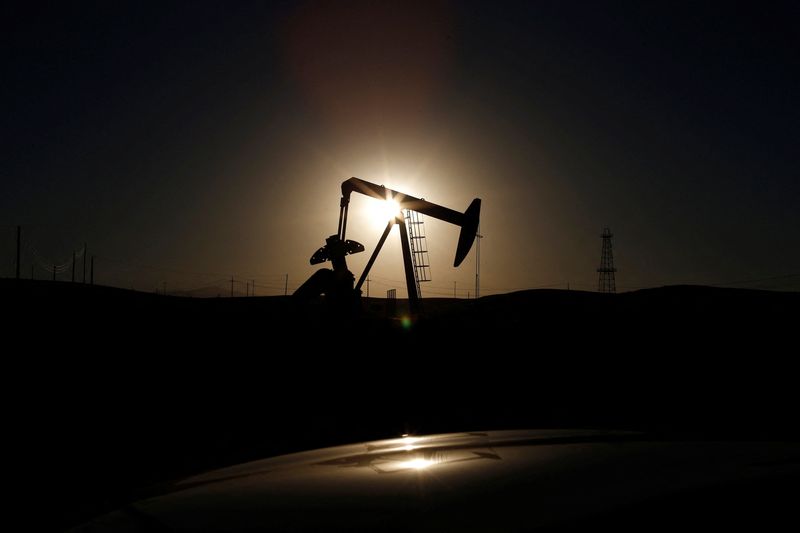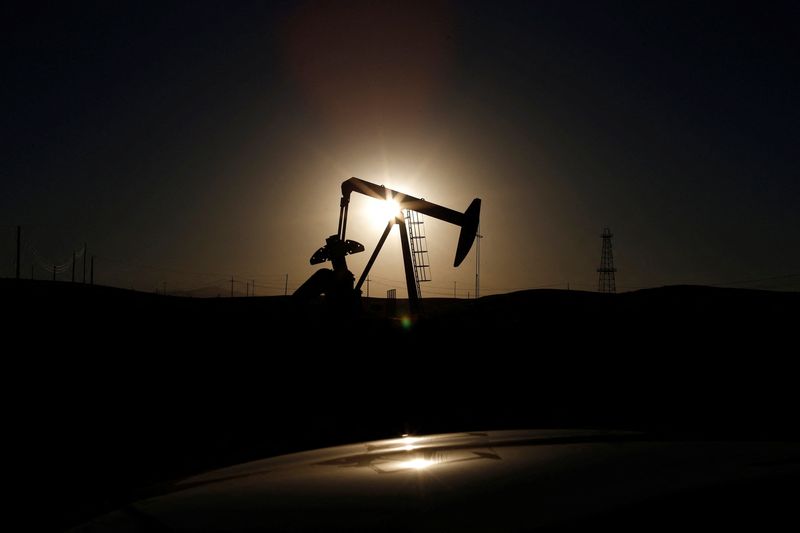
By Paul Carsten
LONDON (Reuters) -Oil prices climbed more than 3% on Wednesday as Israel and the United States vowed retribution over Iran’s biggest ever direct attack on its regional adversary, firing more than 180 ballistic missiles.
With Israel also ordering more soldiers into Lebanon to battle Iran-backed militant group Hezbollah, the conflict has rapidly intensified with little sign of de-escalation despite international pleas.
That has sent oil prices surging, with Brent futures up $2.26, or 3.07%, to $75.82 a barrel. U.S. West Texas Intermediate (WTI) crude jumped $2.38, or 3.42%, to $72.22 by 1320 GMT.
Both crude benchmarks on Tuesday surged more than 5% before closing around 2.5% higher.
Iran said early on Wednesday that its missile attack on Israel was over barring further provocation.
Israeli and U.S. retaliation “could include damaging or obliterating Iran’s oil facilities”, said Tamas Varga of oil broker PVM.
Tehran said any Israeli response to the attack would be met with vast destruction.
Varga noted Iran’s or its allies’ retaliation could strike Saudi oil facilities like in 2019 or see the closure of the Strait of Hormuz. “Any of these events would irretrievably send oil prices considerably higher,” he said.
In another escalation of the conflict, the Israeli military on Wednesday sent regular infantry and armoured units to join ground operations in southern Lebanon against Iran-backed Hezbollah.
The United Nations Security Council scheduled a meeting about the Middle East for Wednesday, and the European Union called for an immediate ceasefire.
Iran’s oil output rose to a six-year high of 3.7 million barrels per day (bpd) in August, ANZ analysts said.
“A major escalation by Iran risks bringing the U.S. into the war,” Capital Economics said in a note. “Iran accounts for about 4% of global oil output, but an important consideration will be whether Saudi Arabia increases production if Iranian supplies were disrupted.”
A meeting of the top ministers of OPEC+, which includes Russia, was under way to review the market, with no policy change expected. The group is set to raise output by 180,000 bpd each month from December.

“Any suggestion that production hikes will proceed could offset concerns of supply disruptions in the Middle East,” ANZ analysts said.
However, Saudi Arabia’s oil minister said that oil prices could drop to as low as $50 per barrel if OPEC+ members do not stick to agreed-upon production limits, the Wall Street Journal reported on Wednesday citing delegates from the oil producers group.
This post is originally published on INVESTING.


